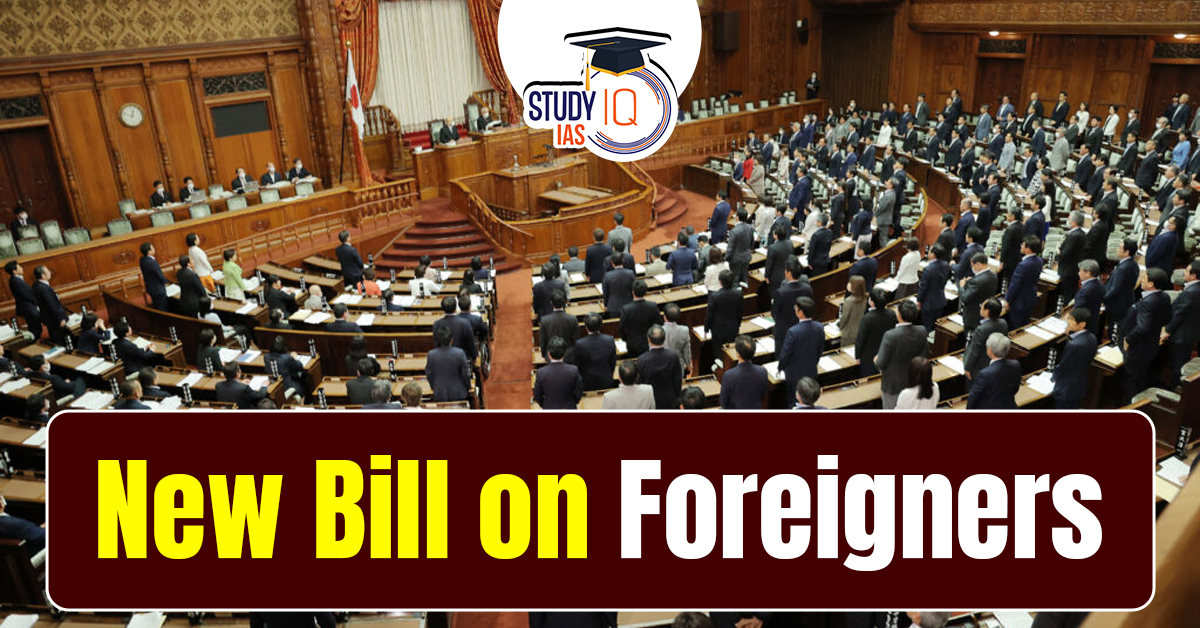Table of Contents
Context: Immigration and Foreigners (Exemption) Order, 2025, recently notified by the Union Ministry of Home Affairs (MHA).
Key Highlights of the Immigration and Foreigners (Exemption) Order, 2025
Exemption from Passport/Visa Requirements
- Indian Armed Forces personnel → when on duty.
- Citizens of India, Nepal, and Bhutan → at specified border check-posts.
- Tibetan nationals → with valid registration certificates and special permits.
- Religious minorities (Hindus, Sikhs, Buddhists, Jains, Parsis, Christians) from Afghanistan, Bangladesh, and Pakistan → if they entered India on or before December 31, 2024, even if with invalid/expired documents.
- Sri Lankan Tamil refugees → who registered and took shelter in India on or before January 9, 2015.
Visa Exemptions
- Foreigners with diplomatic/official passports → if covered under bilateral agreements.
- Foreigners eligible for visa-on-arrival → as per existing provisions.
- Foreign military personnel → when visiting on naval warships.
Key Provisions of Immigration and Foreigners Bill 2025
The Bill will replace four existing laws
- The Passport (Entry into India) Act, 1920
- The Registration of Foreigners Act, 1939
- The Foreigners Act, 1946
- The Immigration (Carriers’ Liability) Act, 2000
Roles and Functions
- Defines the role of Immigration Officers and the Bureau of Immigration (BoI).
- Specifies requirements related to passports, visas and registration of foreigners.
Obligations of Institutions
- Educational Institutions: Must admit foreign nationals and follow prescribed guidelines.
- Hospitals and Medical Institutions: Required to admit foreign nationals as well.
More Power to Immigration Officers
Under the new law, immigration officers will have:
- Greater authority to detain, investigate, and deport illegal immigrants.
- The power to control the movements of restricted foreigners.
- A foreign national can be denied entry or stay if they pose a threat to national security, sovereignty, or public health.
- The Immigration Officer’s decision regarding admissibility will be final and binding.
Penal Provisions
- Entering without a passport: Penalty of 5 years imprisonment or fine up to ₹5 lakh or both.
- Use or supply of forged documents: Penalty of 2 to 7 years imprisonment and a fine ranging from ₹1 lakh to ₹10 lakh.
- Overstaying beyond visa limits: Penalty of 3 years imprisonment and a fine up to ₹3 lakh.
State Role in Detection and Deportation
- State Police Involvement: Since there is no federal police force dedicated to detecting and deporting illegal foreigners, State police have been entrusted with this task.
- States can set up detention centres (though not explicitly mentioned in the Bill) for foreigners awaiting deportation.
Other Mechanisms to Track Foreigners’ Movement
- The MHA has asked States to create two committees to identify foreigners who entered India before and after January 1, 2011, and overstayed their visas.
- Foreigners Identification Portal: It allows State police to upload biometrics and details of illegal foreigners, helping prevent fraudulent document issuance (like Aadhaar cards).


 List of Chief Ministers of Maharashtra F...
List of Chief Ministers of Maharashtra F...
 Electoral System in India 2026: SIR Upda...
Electoral System in India 2026: SIR Upda...
 SLAPP Suits: Meaning, Examples, Impact o...
SLAPP Suits: Meaning, Examples, Impact o...




















